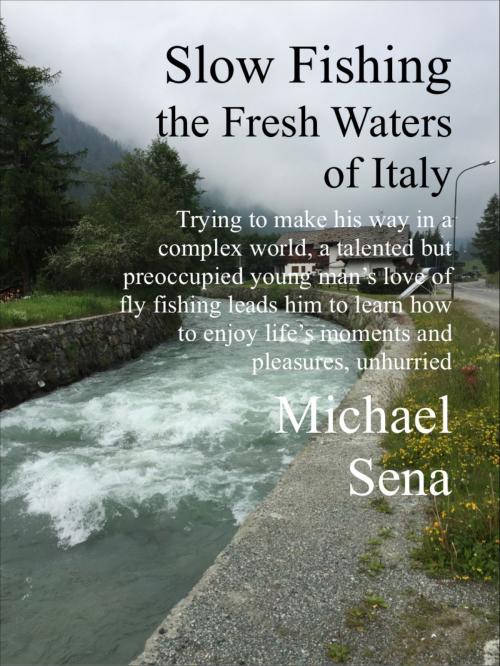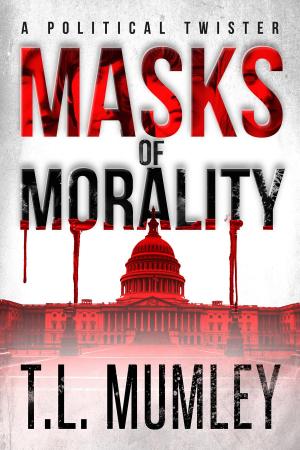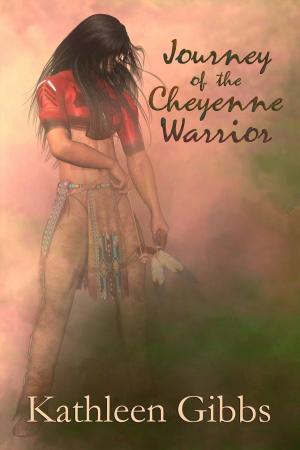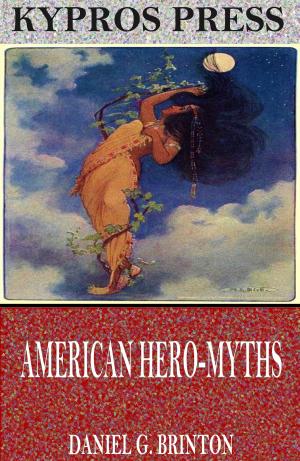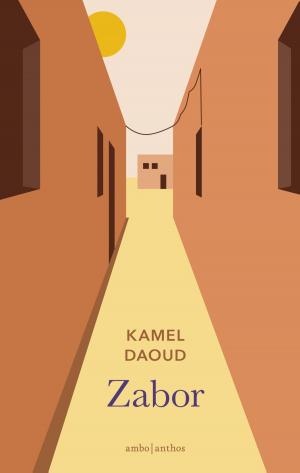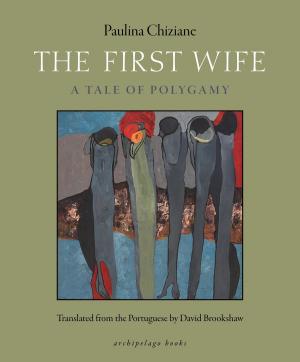Slow Fishing the Fresh Waters of Italy
Nonfiction, Food & Drink, International, European, Italian, Fiction & Literature, Cultural Heritage| Author: | Michael Lawrence Sena | ISBN: | 9781370688234 |
| Publisher: | Michael Lawrence Sena | Publication: | October 19, 2017 |
| Imprint: | Smashwords Edition | Language: | English |
| Author: | Michael Lawrence Sena |
| ISBN: | 9781370688234 |
| Publisher: | Michael Lawrence Sena |
| Publication: | October 19, 2017 |
| Imprint: | Smashwords Edition |
| Language: | English |
Fly fishing lore is not populated with tales of catching trophy trout and grayling in the rivers and streams of Italy. I had never heard of it before I happened to be in Italy in March 2011 when suddenly I had a lot of time on my hands and I met someone old enough to be my father who knew about catching fish with a fly. He also knew about food, architecture, politics and personal relationships, subjects to which I had not given much thought during my thirty-one years.
That was five years ago. Fishing for me then was the only way I could take my thoughts from what had happened thirteen years earlier. I blamed myself for the deaths of my parents. Nothing anyone could say could convince me otherwise. I wanted them back. After the funeral, an idea came to me of how I could keep other children from losing their parents as I lost mine. That idea was what got me though university and into my first job. My first and only employer promised to let me work on my idea for as long as I stayed with the company. I never imagined that the company would not always be there.
Sofi, the only woman I had let into my life after my parents died, believed I would work and fish less, and enjoy life more, if we had a child. I could never explain to her that I didn’t want to work less because there was something more important than anything, including our relationship that I had to finish. I needed to fish in order to give my brain a rest from the guilt. We had not lived together since I rejected the idea of starting a family with her five years before, but she was still my best friend. I continued to rely on her for support when I reached my deepest levels of exhaustion and depression.
Catching fish using flies, rather than with bait or lures, requires your full concentration, from deciding where and when to fish, reading the water, selecting the fly to presenting the fly, hooking, playing, landing and releasing the fish. I believe that most of us who fly fish intensely, as I did five years ago, do so to avoid thinking about thoughts that hurt. People who try fly fishing and give it up don't usually do so because they don't catch fish or feel it’s a waste of time; they leave it because they don't have a reason to block out the world. If they do, they find drugs or alcohol are faster, more effective or just easier. Fly fishing is work.
It was pure coincidence that led me on that day in March, 2011 from a life that was destined to be an unhappy one to having a life today that balances work, family and fishing in a way that in Sweden we call lagom, just right. The process of change started with me having to take a forced vacation because my company could not pay my salary. I was working in the automobile industry, which turned out to be the wrong industry to be in at the wrong time. The worst global recession since the Great Depression had begun eighteen months before, in the autumn of 2009. My company, Saab, had been sold by General Motors in January 2010 to a Dutch businessman named Victor Muller. Saab had not made a profit since 2001. After he took over Saab, Muller spent all the money he was able to scrape together to keep Saab running, but the money was running out and the bad news was arriving in a steady stream. Finally, Muller was out of options. We would all be out of our jobs. I had tried hard to push the thought of Saab closing and me being unemployed out of my mind. When it finally arrived in a phone call from my boss, I definitely felt the only thing I could do was to go fishing.
During those few weeks of fishing, with the help of my new companion, Alessandro, I gradually began to see myself and the world around me differently, more positively. I was with people who were filling the voids that had been in me since that night thirteen years before when I became an orphan, and I was becoming a whole person. I gradually slowed down the pace of my fishing and eating and, eventually, my life, in order to enjoy the pleasure of the moment.
Fly fishing lore is not populated with tales of catching trophy trout and grayling in the rivers and streams of Italy. I had never heard of it before I happened to be in Italy in March 2011 when suddenly I had a lot of time on my hands and I met someone old enough to be my father who knew about catching fish with a fly. He also knew about food, architecture, politics and personal relationships, subjects to which I had not given much thought during my thirty-one years.
That was five years ago. Fishing for me then was the only way I could take my thoughts from what had happened thirteen years earlier. I blamed myself for the deaths of my parents. Nothing anyone could say could convince me otherwise. I wanted them back. After the funeral, an idea came to me of how I could keep other children from losing their parents as I lost mine. That idea was what got me though university and into my first job. My first and only employer promised to let me work on my idea for as long as I stayed with the company. I never imagined that the company would not always be there.
Sofi, the only woman I had let into my life after my parents died, believed I would work and fish less, and enjoy life more, if we had a child. I could never explain to her that I didn’t want to work less because there was something more important than anything, including our relationship that I had to finish. I needed to fish in order to give my brain a rest from the guilt. We had not lived together since I rejected the idea of starting a family with her five years before, but she was still my best friend. I continued to rely on her for support when I reached my deepest levels of exhaustion and depression.
Catching fish using flies, rather than with bait or lures, requires your full concentration, from deciding where and when to fish, reading the water, selecting the fly to presenting the fly, hooking, playing, landing and releasing the fish. I believe that most of us who fly fish intensely, as I did five years ago, do so to avoid thinking about thoughts that hurt. People who try fly fishing and give it up don't usually do so because they don't catch fish or feel it’s a waste of time; they leave it because they don't have a reason to block out the world. If they do, they find drugs or alcohol are faster, more effective or just easier. Fly fishing is work.
It was pure coincidence that led me on that day in March, 2011 from a life that was destined to be an unhappy one to having a life today that balances work, family and fishing in a way that in Sweden we call lagom, just right. The process of change started with me having to take a forced vacation because my company could not pay my salary. I was working in the automobile industry, which turned out to be the wrong industry to be in at the wrong time. The worst global recession since the Great Depression had begun eighteen months before, in the autumn of 2009. My company, Saab, had been sold by General Motors in January 2010 to a Dutch businessman named Victor Muller. Saab had not made a profit since 2001. After he took over Saab, Muller spent all the money he was able to scrape together to keep Saab running, but the money was running out and the bad news was arriving in a steady stream. Finally, Muller was out of options. We would all be out of our jobs. I had tried hard to push the thought of Saab closing and me being unemployed out of my mind. When it finally arrived in a phone call from my boss, I definitely felt the only thing I could do was to go fishing.
During those few weeks of fishing, with the help of my new companion, Alessandro, I gradually began to see myself and the world around me differently, more positively. I was with people who were filling the voids that had been in me since that night thirteen years before when I became an orphan, and I was becoming a whole person. I gradually slowed down the pace of my fishing and eating and, eventually, my life, in order to enjoy the pleasure of the moment.
